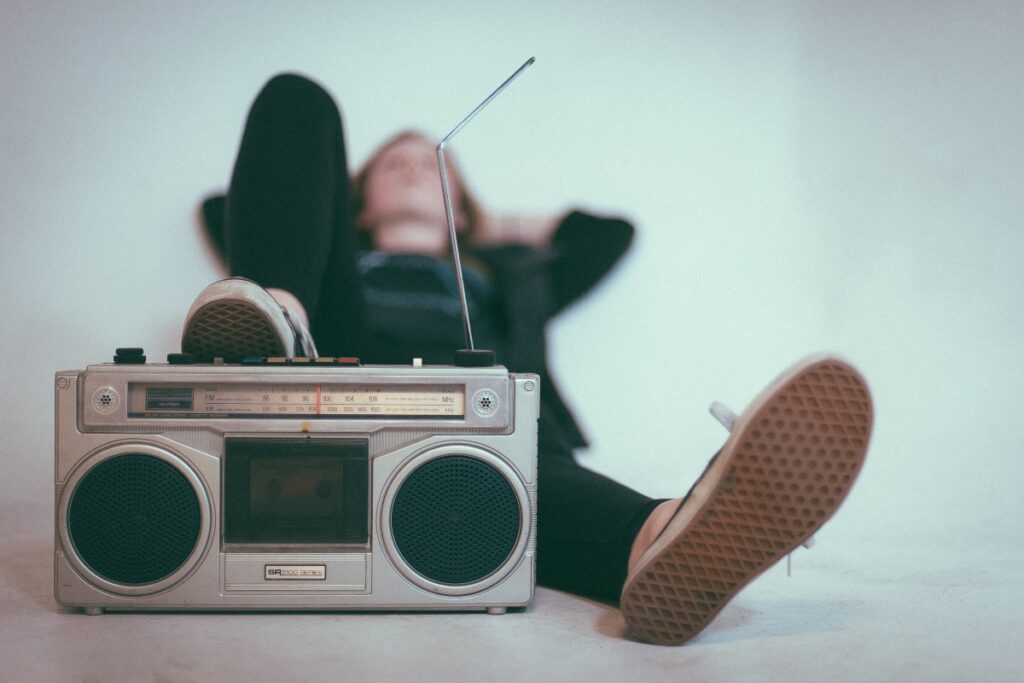Recovering from an addiction can be incredibly uncomfortable. There are many hardships to overcome in this journey. Finding the right therapeutic approach can make a huge difference. Music therapy is an alternative form of therapy that is highly effective for many people. It utilizes music to improve emotional, physical, and mental well-being.
What Is Music Therapy?
Music therapy is an evidence-based practice that uses musical experiences within a therapeutic relationship to address physical, emotional, cognitive, and social needs through recovery. This practice relies on the idea that music has a unique ability to engage all aspects of an individual and stimulate different parts of the brain.
Fortunately, music therapy is accessible to individuals of all ages. It also doesn’t require prior musical experience. Various musical interventions are implemented as therapeutic solutions for different obstacles in the recovery process.
Music Appreciation
Listening to music is a common therapy practice used in addiction recovery. It can promote relaxation, motivation, or distraction.
Through music therapy, individuals in recovery learn how to manage their emotions more effectively while reducing stress and anxiety. Listening to music can promote a positive and uplifting environment in the treatment setting. Playing music during group therapy sessions helps create an atmosphere of community and shared experience.
Depending on the music genre you surround yourself with, you may experience different effects. Understanding the effects that music genres can have on your emotions can assist you in developing therapeutic practices that enhance your positive emotions and help you express negative emotional energy in a healthy way. It is important to pay attention to how each genre personally affects you.
Songwriting
The practice of songwriting is an expressive therapy technique that helps to spark creativity. This form of engagement allows individuals to express their emotions and experiences in a non-threatening and creative manner.
Songwriting demonstrates the therapeutic effects of music on self-expression. This therapeutic practice can also give individuals in recovery a sense of mastery and control over their lives. Crafting something fresh and meaningful with words and sounds can be empowering and motivating.
Movement of Music
The movement of music is a music therapy practice that uses music to inspire movement and dance. This type of exercise can be beneficial in addiction recovery. After all, it allows individuals to express themselves physically, which can release trapped emotions.
Music and movement have been shown to assist those in recovery by enhancing their physical health and well-being. Exercise has also been proven effective at relieving stress, decreasing anxiety levels, and elevating moods.
Group Music Therapy
Music therapy can also be used as an intervention in a group setting. Group music therapy can be particularly helpful during addiction recovery. Like other forms of group therapy, it offers individuals the chance to connect with others going through similar experiences.
It can be challenging for individuals in recovery to let their guards down and connect with others. Group music therapy helps to bring about a sense of community and shared experience. This may help the individuals to avoid feeling isolated or alone. Sound bath therapy is commonly used as a form of group music therapy.
Relaxation Through Music
Musical relaxation techniques utilize music to promote relaxation and reduce stress or anxiety. These practices may include the therapeutic use of guided imagery, progressive muscle relaxation, and deep breathing exercises.
Music relaxation techniques can help individuals manage emotions and reduce physical symptoms associated with stress and anxiety. These practices have the potential to improve sleep quality, which is commonly disrupted through the recovery process, and help to retain overall emotional balance.
Music Performance
Performing music for an audience can be very beneficial to some individuals in recovery. It provides an emotional release and a sense of pride when they can express themselves through music.
Music performance can help to build confidence and boost feelings of self-worth. Performing for an audience can be intimidating, but the experience itself can be highly rewarding.
Improvision
Music improvisation involves creating music in the moment. This type of expression can provide individuals in recovery with an outlet to express themselves nonverbally. Music improvisation can open up room for individuals to express their creativity and spontaneity.
Improvising music can be a liberating experience, allowing individuals to let go and let go of inhibitions. This practice is incredibly beneficial in enhancing the practice of mindfulness and improving self-awareness.
Is Music Therapy Right for Me?
Music therapy is not the best holistic practice for everyone. Experimenting with it can allow you to determine if the practice resonates well with you.
If music is more of a new concept to you, it may require high levels of concentration and commitment to adjust to. This can be a great distractor from cravings and the other hardships of your recovery journey.
Addiction recovery treatment is not a one-size-fits-all experience. What works well for others may not be as effective in your recovery. It is important to keep an open mind and find practices that truly work for you. Don’t be afraid to ask for further assistance from our team at Dream Recovery for insistence with implementing these practices in your recovery.
Music therapy is a unique approach to recovery. This evidence-based practice can be applied in various ways, leaving you the opportunity to apply it according to your needs. Various forms of music therapy practices can benefit your recovery journey. These practices include listening to music, songwriting, moving to music, engaging in group music therapy, utilizing music relaxation techniques, performing, and improvising. It can be difficult to adjust to the use of music therapy, as it is not often thought of as a therapeutic practice, but a creative skill. Allow yourself time to adjust to this practice to see if it can provide long-term benefits to your sobriety maintenance. To learn more, contact Dream Recovery at (657) 216-7218.

